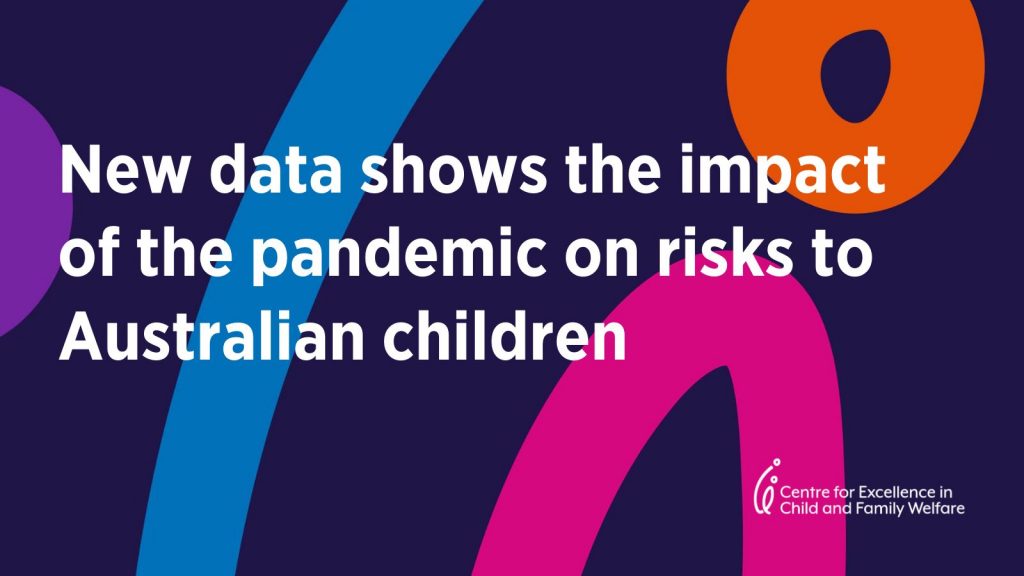Early in 2020, the Centre for Excellence in Child and Family Welfare shared the concerns of experts and advocates that the global pandemic would lead to increased risks for children and reduced reporting of child abuse. This was based on evidence of previous crises, including epidemics and natural disasters, which have weakened child protection systems and mechanisms for reporting. Without the safety net of school, childcare and other universal services, there is a significant risk of children falling through the cracks and not getting the support or protection they need.
Recently released data from the Australian Institute of Health and Welfare (AIHW) confirms these fears and highlights the vulnerability of children to abuse when community oversight is diminished. AIHW’s Child protection in the time of COVID-19 presents child protection data on notifications, substantiations and out-of-home care, with some findings relating to child sexual exploitation, from March to September 2020. Some key findings from the report are that:
- Notifications to child protection fell during the ‘first wave’ of COVID-19, particularly during April 2020, and increased in May/June as children returned to school after the holidays. In Victoria, there was a second drop over July to September 2020 when restrictions to physical school attendance were in place
- Compared with data from 2019, substantiations were 25 per cent lower in Victoria for March to August 2020
- There was minimal change in the number of children in out-of-home care across the country from March to September 2020
- Reports of online child sexual exploitation increased by 122 per cent through April to June 2020.
The report notes that these are early findings, and the impacts on substantiations and out-of-home care could take longer to determine.
Data relating to risk factors for child abuse and neglect are also included where available. Concerningly, among people seeking support during COVID-19, those seeking family violence support were the most likely to report difficulty in gaining access.
Although average household income dropped, the report recognises the benefits of increased assistance to families who were already living on income support:
The JobKeeper and Coronavirus Supplement payments had a protective impact on families by reducing poverty compared with pre-COVID-19 levels – specifically, the poverty rate for single-parent families more than halved (from 20% to 8%) (p. 9).
Unfortunately, this support has now been significantly decreased, and could cease entirely at the end of March 2021, driving families back into poverty and potentially increasing risk to children.
The report also found a significant increase in urgent applications to the Family Court and Federal Circuit Court related to parenting disputes, high levels of parental mental distress, and increased demand for family violence support services.
The AIHW report highlights the importance of maintaining ongoing scrutiny of the impact of the pandemic and associated restrictions on children’s wellbeing and safety, and of maintaining robust child protection systems and reporting mechanisms during periods of crisis.






